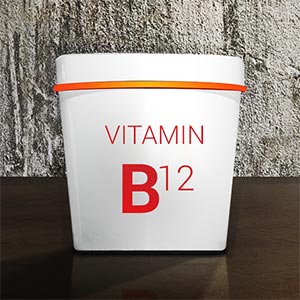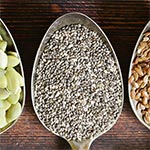Whey protein has generated a lot of interest among researchers worldwide. And the best part is its high nutritional value. Unsurprisingly, it works for all people regardless of their age.
Whey Protein is a popular supplement with gym goers and sportspeople who take it to improve muscle protein synthesis and increase the growth of lean muscle tissue. Whey protein has all the essential amino acids. It is a prolific source of branched-chain amino acids (BCCAs) which aid in rapid muscular growth. However, they are more whey protein benefits than side effects.
Whey Protein is been known to contain immunoglobins, a type of protein essential for maintaining a robust immune system, thus whey protein helps to ward-off disease.
Whey protein has three main varieties Whey Protein Concentrate (WPC) it has a little fat and Carbohydrate in form of lactose, and up to 30% protein in low concentration and up to 90% protein in higher concentrations. It is the hardest to digest but cheapest of all.
Whey Protein Isolate (WPI) is been further processed to eliminate all the fats and lactose, which makes it 90% protein, they are easier and quicker to digest than WPC, but more expensive than Whey protein concentrate.
Whey Protein Hydrolysate (WPH) is supposedly a predigested form of whey protein, it has been partially hydrolyzed-a process essential for the body to absorb protein. It is readily absorbed and easy to digest.
Whey protein Hydrolysate (WPH) is the most expensive type of whey protein, mostly used in medical protein supplements and infant food formulas due to its ease of digestion and less allergic reactions.
Now that we know the difference, here are the whey protein health benefits.
Health Benefits and Effects
Keep reading and you’ll find out much about whey protein advantages.
Perfect Source of High-Quality Protein
It is a complete protein supplement that contains all the essential amino acids in one pack, and it is digestible and easily absorbable in the gut than any other types of proteins. This makes whey protein amongst the best supplementary sources of proteins. Whey protein is popular with athletes, body builders and others who need extra protein because of the whey protein advantages.
Weight Loss Enhancer
Whey protein is more satiating than most protein types such as Soy and Casein. But here’s something really interesting Whey protein affects a certain hunger-reducing hormone-Ghrelin and thus reduces hunger and the desire to eat; it tells your brain that you are full just after meals. Whey protein is thermogenic, helps reducing fatty deposits in the body and increasing lean muscle mass,
Lowers High Blood Pressure
Whey protein is cited in clinical trials that it plays a role in reducing hypertension. This is because of active bioactive peptides called Lactokinins, which is found in dairy products and is beneficial in reducing the effects of blood pressure.
Promotes Muscle Growth
Whey protein contains a growth promoting amino acid called Leucine which makes muscles grow faster. It also reduces age-related muscle loss by building more muscle mass. Thus Whey protein is vital for muscle building when combined with a strict exercise regime.
Boosts the Immune System
A key antioxidant in humans is glutathione, antioxidants help eliminate harmful free radicals from the body that may cause damage to cells and lead to diseases like cancer. Whey protein health benefits are evident in boosting the immune system against age-related diseases such as Alzheimer’s, Parkinson’s, Coronary disease and Cancer. Whey protein has the highest amount of Glutathione.
Stress Eliminator
Whey protein contains a critical amino acid called Tryptophan which is linked to the production of Serotonin, the feel good hormone by the Brain. Low levels of serotonin lead to anxiety and depression. But, increasing your serotonin levels by taking a diet rich in proteins like whey, will lead to the production of more serotonin and eliminate the feelings of stress.
Reduces the Effects of Type 2 Diabetes
Whey protein is beneficial as a supplementary treatment for type2 diabetes, as it moderates the blood sugar levels by increasing the levels of insulin and thus reducing the effects of diabetes.
Dosage
Whey protein comes mostly in powder form and is normally mixed with milk, water or fruit juices. The general dosing is about 22-50 grams per day, however, it is important to follow the dosing instructions on the supplements packaging.
Side Effects
Excessive protein intake is useless, as the body can only use a limited amount of protein at a time. Excessive protein consumption may lead to digestive complications which is one of the whey protein disadvantages. Some of those problems include bloating, nausea, diarrhea, flatulence and stomach cramps.
Lactose intolerant individuals must use WPH whey protein Hydrolysate or WPI whey protein Isolate which do not contain lactose.
Closing Thoughts
Whey protein as a supplement has been highly touted by both athletes and body builders in blogs and on TV as a complete protein source. But there is a need for extra caution before starting on whey protein regime. You may need to consult a health care professional to confirm medical safety while using whey protein with other drugs.
Whey protein just like any other protein is essential for our bodies, as it gives us energy, produces enzymes and hormones we need. Protein helps the body to repair and build worn out muscular and tissues of our body.







